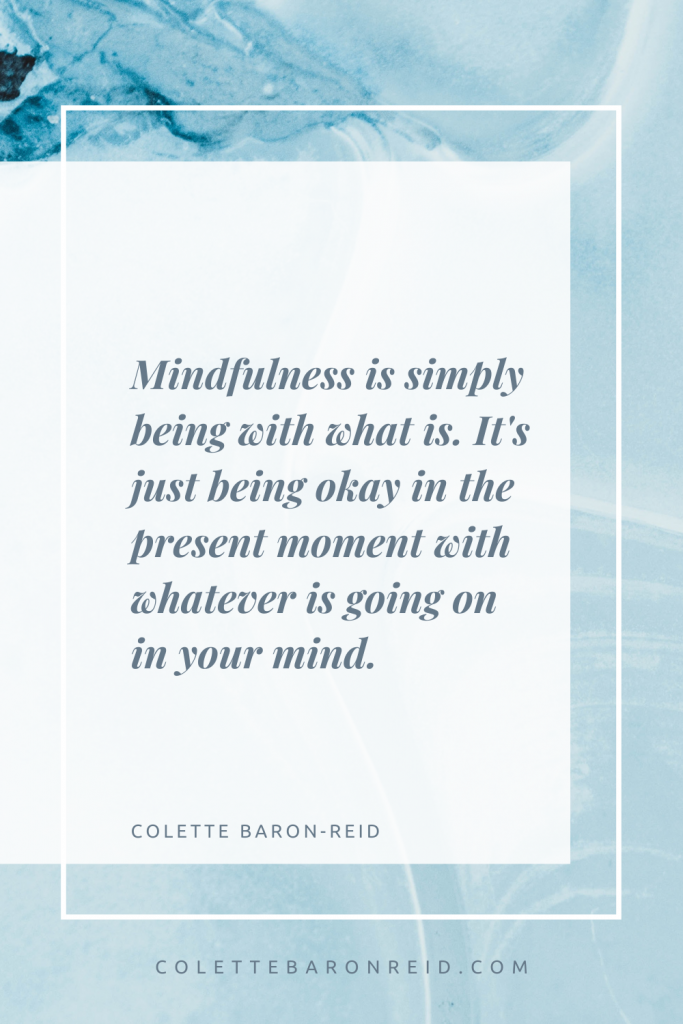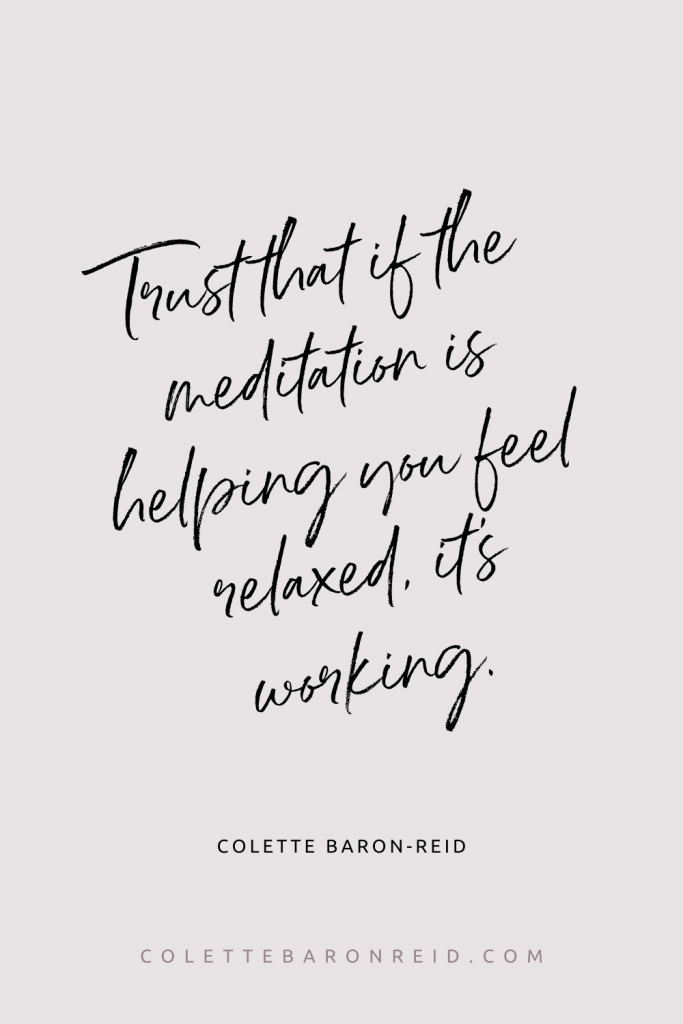Meditation is one of the best, proven methods we have for lowering stress levels and feeling more grounded and at ease in our lives. The benefits of meditation are seemingly endless…
In our busy lives, we’re often caught up in fight, flight, or freeze mode – reacting to situations that trigger us or take us off of our center, and often keep us stuck there. Meditation is a practical tool that can help us deeply relax and calmly respond even to the most challenging situations. It isn’t about forgetting about the stressful parts of your life, nor bypassing them, it’s about reaching a place of calm neutrality so you can make clear decisions and respond with intention.

A strong meditation practice makes everything in life feel more manageable. And learning to meditate can help give you a natural understanding of how to practice mindfulness in the rest of your life.
Meditation has been an incredibly important part of my path and my healing journey (although you may not know it because of how hyper I always am, although I like to see myself as chatty and enthusiastic!)
I’ve been meditating pretty much every single day for 35 years, ever since I first discovered this practice in a treatment center for alcohol and drug addiction.
Discovering the different types of meditation
When I first discovered meditation in the treatment center, they called it “relaxation time,” but it was actually a guided meditation. They took me through this mindfulness practice where I imagined I was listening to a babbling brook, and I was hooked.
I went from so uptight, tense and anxious to genuinely relaxed for the first time in forever. I felt this sense of drifting away and being able to quiet my mind. Sometimes when I first started experimenting with meditation, I felt like a failure. I was fidgety, my mind raced, and I felt like I didn’t do it right. I was questioning myself the whole time. But the meditations with guided imagery really worked for me. I loved them.
After that, I became a bit of a meditation tourist…
I did everything from meditating in the Unity Church, to taking classes at a Tibetan Temple, to Kundalini yoga, to getting swatted at the local Zen temple for fidgeting, to transcendental meditation …. I tried it all!
I realized each form of meditation was just a different way in which I could connect to Spirit (universe, Divinity, Source, and other names- you get to pick) . And I had to find the one that worked for me! The one that felt the most magical and effective to me.
One of the things I love about guided meditation is that it helps us bypass the subconscious mind. Not only does it quiet our thoughts, it helps us move into our unconscious, dreaming mind and out of the patterns and stories of our subconscious, which is the trained and conditioned mind.
I still think guided meditation is one of the best kinds of meditation for beginners. So if you’re looking to start experimenting with types of meditation or you’re wondering how to practice mindfulness, this is a wonderful place to start.
Mindfulness Meditation
The second kind of meditation I fell in love with on my journey is Mindfulness Meditation. At this point you might be wondering, What is mindfulness?? And if that’s you, you’re not alone.

Mindfulness is simply being with what is. It’s just being okay in the present moment with whatever is going on in your mind. And it’s not about doing anything other than watching. So you can start a mindfulness practice just by counting your breaths.
When you do this simple practice, you’ll naturally start to slow down. In some ways, it’s really the easiest form of meditation for beginners to learn.
Within every single person there is an observer. We all have the ability to watch our thoughts. We can go, “Oh, that’s interesting. I’m thinking about this”
If you’re new to mindfulness meditation, you can begin by allowing your thoughts to behave like they are leaves on a river. Each thought is just a leaf, floating past you on the river.
As they pass, you don’t make any judgments and you don’t have any reactions. You just let them pass by and feel yourself calming down. Feelings and thoughts are transient and they move and rarely land for long.
Naturally, you’ll start to detach from your stress and the stories you’re ruminating over.
I don’t know about you, but I sometimes have a very active imagination about conversations I’m having with people who aren’t even there! This practice allows us to just observe all of that and come to a more neutral, grounded place.
Managing expectations while you learn to meditate

Sometimes when people first start experimenting with mindfulness meditation or guided meditation, they worry that they’re doing it wrong. I felt that was at first too! Like I would never be able to sit still enough to be good at meditating.
When it comes to guided meditations, sometimes people reach out and say, “I don’t see anything in the guided meditations, is that normal?”
My answer is, “Absolutely yes.” It’s really important for people to dial down their expectations. If your mind races and you get attached to thoughts, or if the imagery just isn’t coming to you, that’s ok.
Some people are super visual, most people are not. Trust that if the meditation is helping you feel relaxed, it’s working. Even if you don’t let every thought float by like a leaf or even if you don’t see the image inside your head like it’s on a screen.
How beginners can start a meditation practice
If you’re curious about adding mindfulness into your life and creating a meditation practice, the best way to start is small and with no grand expectations.
Start with 5 minutes. Choose some music you really like to listen to in the background (I love using spa music or the sound of running water). Simply spend 5 minutes counting your breaths and ta-da – you’ve meditated!
Don’t be worried if you sit there and start thinking about what you have to buy at the grocery store. Count your 5 minutes as a win and come back again tomorrow! With practice, you can increase the time and it will get easier.
In the beginning, you also have to be willing to sit through the discomfort. It might feel fun and great for a day or two, and then you’ll hit some resistance! Some days will be easier than others, but consistency is key. Just sit each day for any amount of time you can manage.
If you’ve been under extra stress recently (haven’t we all!), or if you’re an empath and you tend to feel everyone else’s everything, a consistent meditation practice will change your life. This is a chance to sit down and get out of the stress of your daily life and remember that you have a spark of divinity in you.
It’s a chance to come back to a place of neutrality, peace, and calm. To be more present in your life.
Meditation goes beyond just regular self-care to what I like to call “soul-care.” If you’re looking for more ways to deeply care for yourself and tend to your inner-life, you’ll love my FREE guide, “From Self-Care to Soul-Care.” which you can download here.

